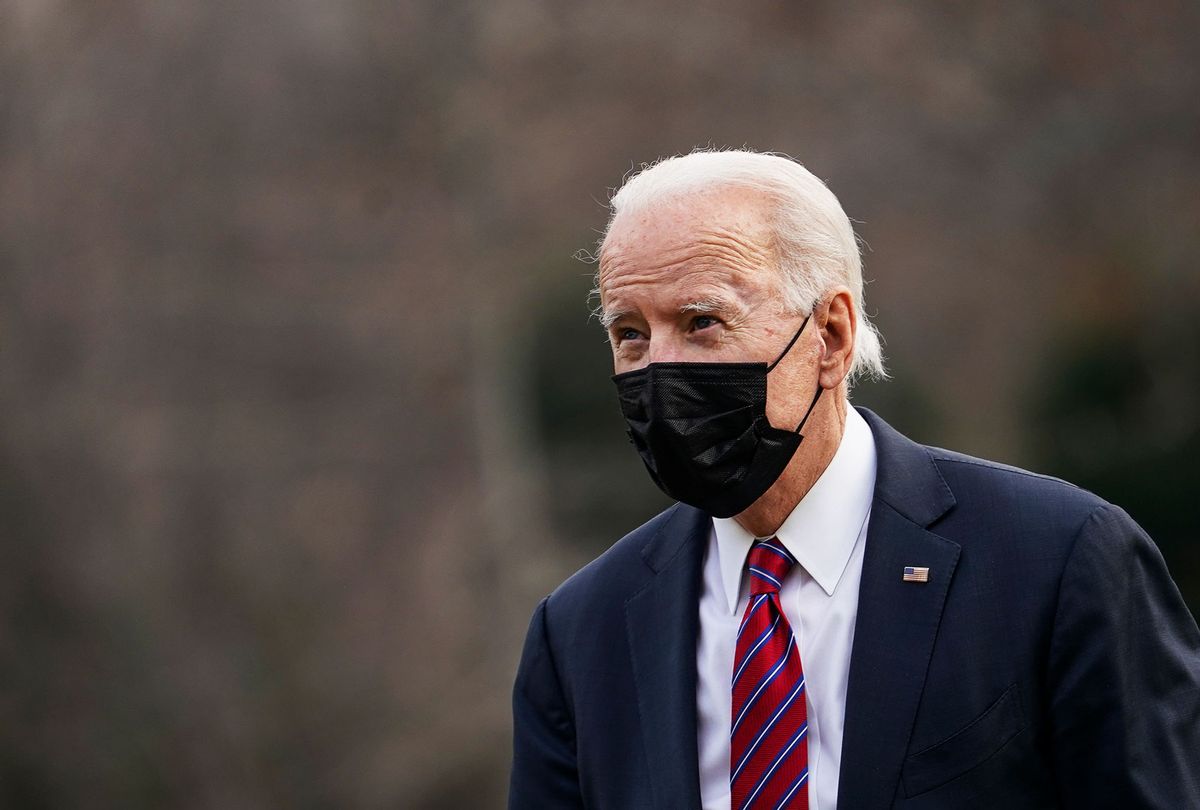While people might have soured on public polling in recent years, the overwhelming popularity of President Joe Biden's sweeping $1.9 trillion Covid relief package, passed by the House of Representatives on Wednesday and expected to be signed into law on Friday, is certainly not a good starting point for the Republican minority standing in opposition and looking to regain power in 2022.
A CNN poll released Wednesday finds 61% of Americans support the massive relief package that received not one Republican vote in either chamber of Congress. A Pew Research poll released on Tuesday found that 41% of Republican voters support the Democrats' bill.
The House of Representatives voted 220-211 on Wednesday to the sweeping legislation choke-full of longtime progressive priorities, sending it straight to the President's desk after it narrowly passed an evenly divided Senate over the weekend.
Dubbed the "American Rescue Plan," the bill marks a defining victory for the Biden administration and its effort to navigate the country out of the year-long economic and public health crises that is the coronavirus pandemic. Despite fierce opposition from across the aisle, Democrats are hailing the bill as a landmark piece of anti-poverty legislation.
"This legislation represents the boldest action taken on behalf of the American people since the Great Depression," House Democratic Caucus Vice Chairman Pete Aguilar, D-Calif., said on Tuesday. House Ways and Means Chairman Richard Neal, D-Mass., echoed Aguilar: "This is seismic legislation."
As Salon's Ramsey Touchberry reported, Neal has already indicated that temporary child tax credit provision within the package, which he says is "going to change lives," will likely become permanent.
"One thing you should know about the tax code," Neal told reporters on Tuesday, "getting something out of the code is oftentimes harder than getting something in the code. I've already had some thoughts about how we're going to expand it and make it permanent."
The nonpartisan Tax Policy Center projected that Biden's stimulus will boost incomes for the poorest 20% of Americans by a margin of 20%. With unemployment benefits set to expire for millions of Americans within a week, the stimulus assistance is meant to financially buoy jobless Americans crippled under the weight of the pandemic. Provisions in the bill include $1,400 direct payments to individuals making up to $75,000, an extension of weekly $300 unemployment payments until Sep. 16, a boosted child tax credit of $3,600 for kids up to age 5, a $350 billion spending package to cities, $128 billion to assist K-12 schools in re-opening, as well as money for increased COVID testing and for hospitals.
Last week, the bill passed in the Senate by a 50-49 vote following a prolonged marathon of late-night amendment proposals (i.e. "vota-a-rama"). In an effort to stall the bill's passage, Republicans forced the clerk to read the 627-page bill, a delay that cost Democrats eleven hours. This week, Republicans in the House, lead by freshman Rep. Marjorie Taylor Greene set off on a similarly delaying stunt.
"This is a critical moment in our country's history," House Speaker Nancy Pelosi, D-Calif., said before Wednesday's delayed vote. "Today, we have a real opportunity for change."
The bill, however, will not include the $15-an-hour minimum wage provision backed by progressives following the Senate Parliamentarian's ruling that the addition violated the rules of the budget reconciliation process, which Democrats used to expedite the bill's passage. Vice President Kamala Harris declined to overrule the Senate Parliamentarian's decision.
Republicans have widely denounced the bill as a Democratic power-grab, specifically taking issue with many of the non-Covid-related provisions sought by progressives. GOP lawmakers also questioned whether another relief bill was needed after December's $900 billion package. House Minority Leader Rep. Kevin McCarthy, R-Calif., for example, demurred the bill as a "laundry list of leftwing priorities that predate the pandemic and do not meet the needs of American families."
Alluding to Obama's passage of the Affordable Care Act in March of 2010, Eric Levitz wrote in New York Magazine, "The $1.9 trillion bill, which passed the Senate on Saturday, is a 'BFD' at both the ground level and the 10,000-foot one." He continued, "The legislation's immediate policy consequences are profound and far-reaching, while its most significant provisions represent paradigm shifts in the Democratic Party's approach to governance, which is to say the law could plausibly mark a leftward realignment in American policymaking, at least if Biden & Co. continue to govern in its spirit."
Despite a sharply divided Congress, the relief package has long held bipartisan support from the general public. According to a poll taken by Morning Consult in February, 76 percent of American voters backed the bill. 89 percent of Democrats supported the bill while 60 percent of Republicans signaled their support as well.
"For weeks now, an overwhelming percentage of Americans – Democrats, Independents, and Republicans – have made it clear they support the American Rescue Plan. Today, with final passage in the House of Representatives, their voice has been heard," President Biden said in a statement. "This legislation is about giving the backbone of this nation – the essential workers, the working people who built this country, the people who keep this country going – a fighting chance," he added.



Shares